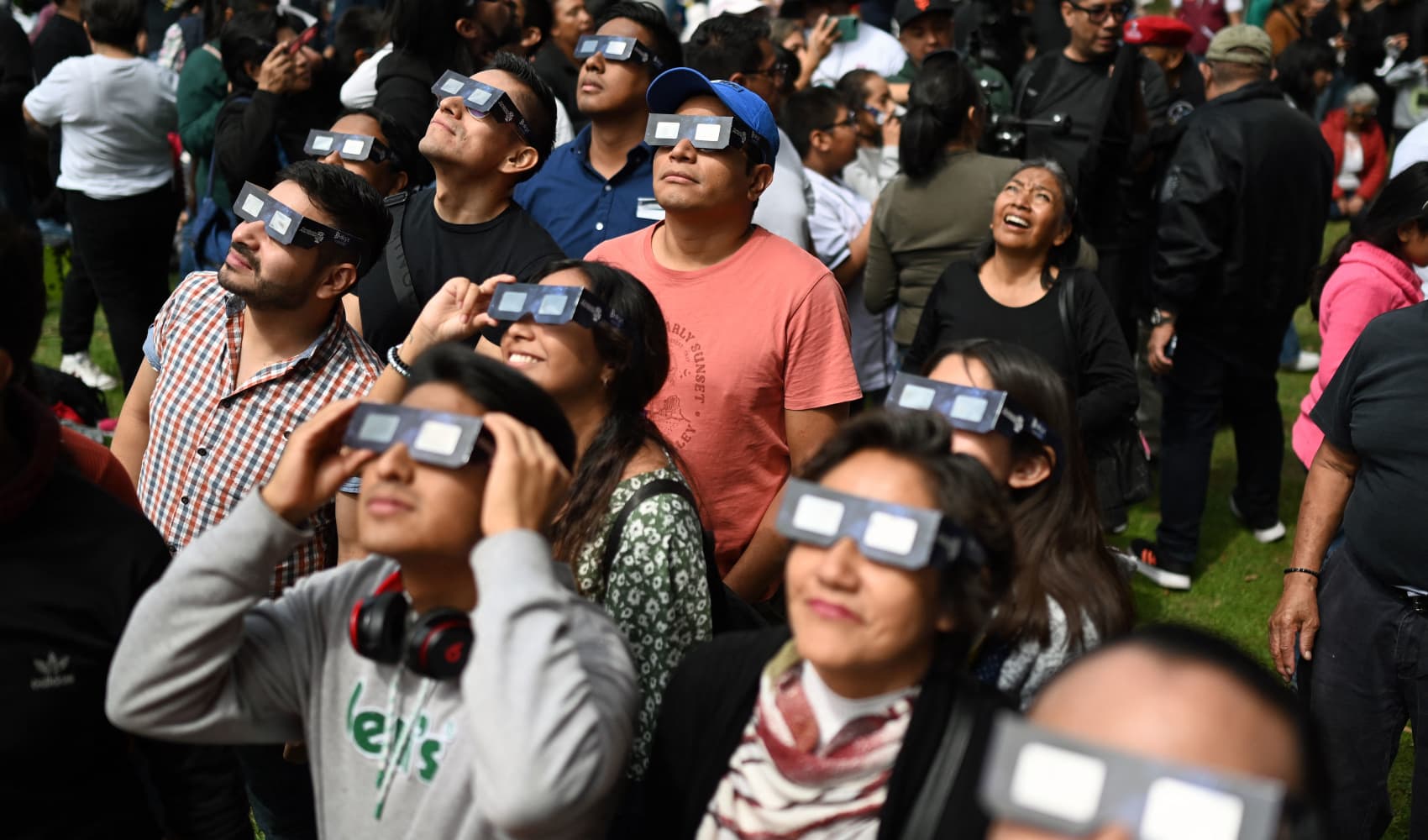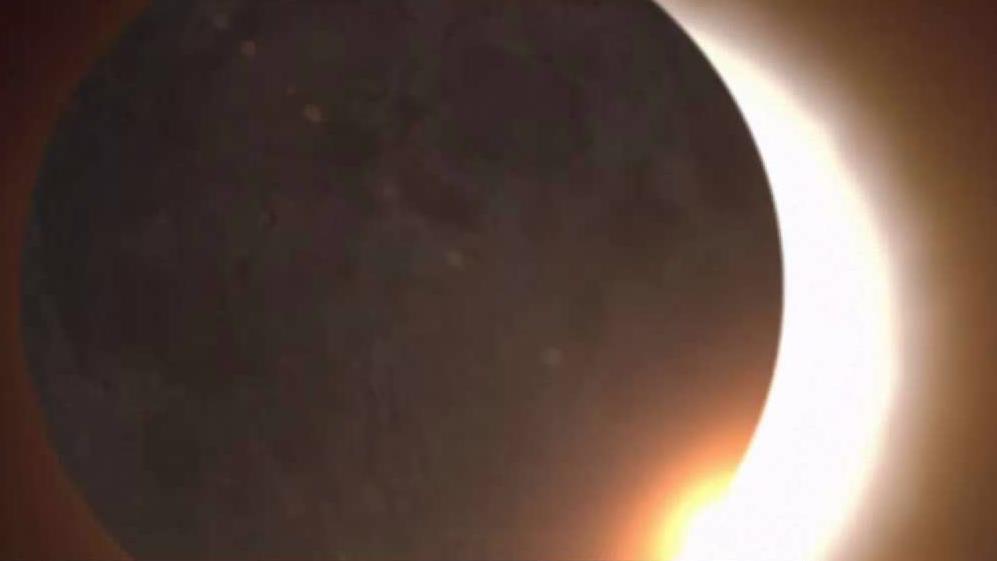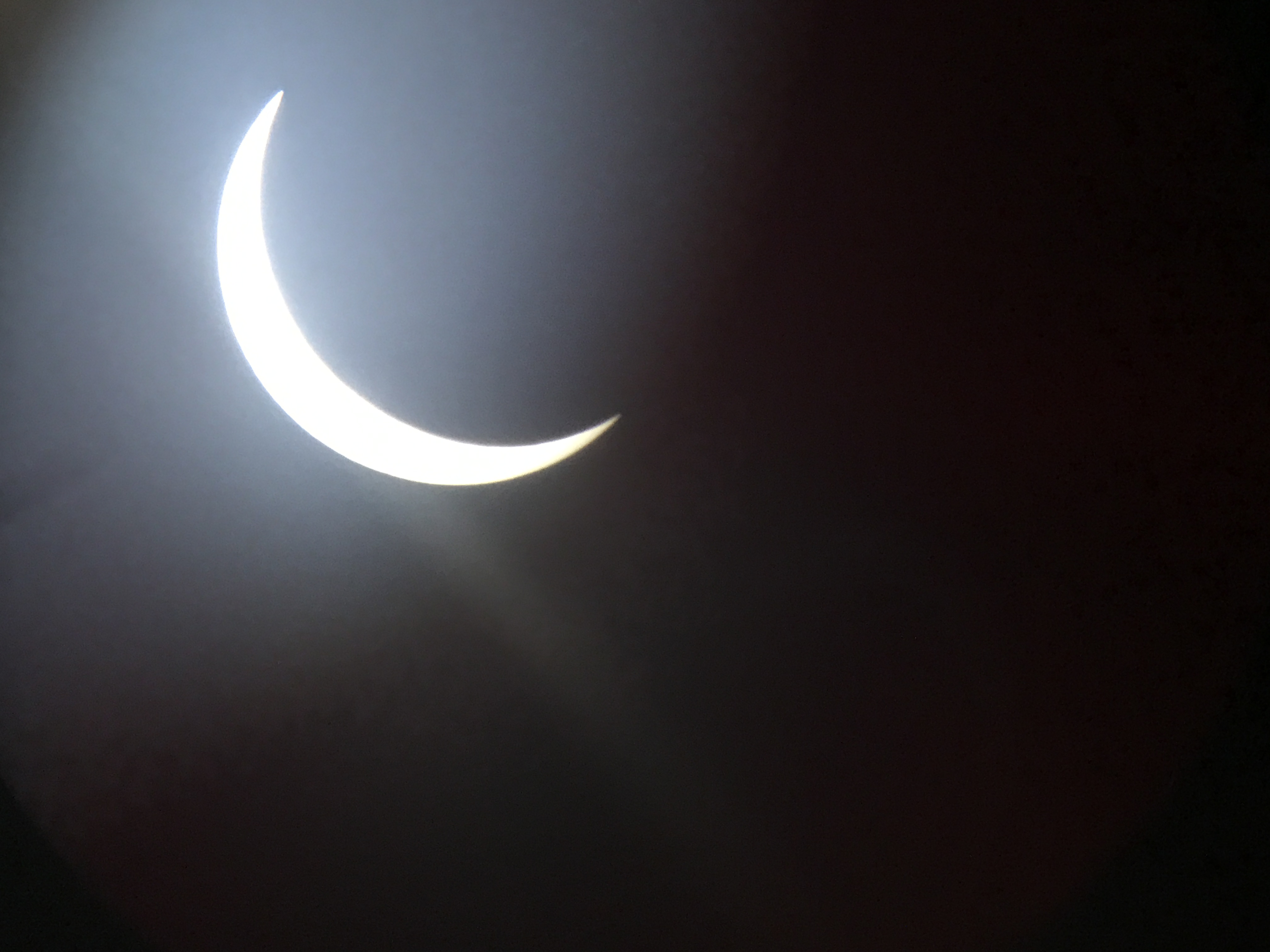Editor's Note: Live coverage of the eclipse from the path of totality begins in the player above starting at 7 a.m. Tune in for live totality starting at 1:55 p.m.
If you don't have the proper eye protection, looking at the solar eclipse can be damaging and you likely won't feel the pain as it's happening.
According to the Adler Planetarium, viewing the solar eclipse without proper eyewear can result in irreversible eye damage within seconds, and your eyes lack the nerve endings to register pain as it's occurring.
Feeling out of the loop? We'll catch you up on the Chicago news you need to know. Sign up for the weekly Chicago Catch-Up newsletter here.
What's more, your pupils will be more dilated as the eclipse occurs, allowing more harmful rays to enter your eyes than on a normal sunny day.
"The amount of light coming from the sun is intense," Michelle Nichols, director of public observing at the Adler Planetarium, told NBC Chicago. "And so you have a lot of visible light, you also have infrared light and ultraviolet light. It's the infrared and ultraviolet that you especially don't realize that your eyes are being subjected to. You don't have nerve endings on the back of your eyeball, so you could be experiencing a burn and not know it. And that burn might turn out to be permanent."
According to the National Center for Biotechnology Information, a person whose eyes are damaged by a solar eclipse will begin feeling symptoms within a few hours of the exposure.
"Damage from the eclipse is unlikely to cause pain or discomfort in your eyes because the retina does not have any pain nerves," the American Academy of Opthamology reported. "Instead, you would notice visual symptoms within four to six hours. But some may notice symptoms after 12 hours."
While some people may recover their vision as their retina heals, many won't, according to the Baylor College of Medicine. Plus, no reliable treatment for solar retinopathy exists, making the use of proper eye protection even more important.
"It's not really even obvious on an exam at first for those patients," said Derek Price, an optometrist in Fort Wayne, Indiana. "They'll come in with a complaint, they'll tell you I'm seeing a spot in my vision and that's all you get. But then over the course of the next couple months, if they come back, then you can see where it's degraded the retina itself. If it's degraded... the photoreceptors in the back of the eye could be lost forever."
Regular sunglasses, even very dark ones, are not safe to view the eclipse.
For those planning to see the eclipse through a camera, binoculars or telescope, those devices alone won't be enough.
Special solar filters are needed to avoid eye damage, explained Nicole Bajic, a surgical ophthalmologist with the Cleveland Clinic.
According to NASA, the only time it is safe to look at the eclipse without protection is during totality, which only some locations will experience.
The path of totality stretches from Texas to Maine and includes parts of southern Illinois.
"You can view the eclipse directly without proper eye protection only when the Moon completely obscures the Sun’s bright face – during the brief and spectacular period known as totality," NASA reports. "As soon as you see even a little bit of the bright Sun reappear after totality, immediately put your eclipse glasses back on or use a handheld solar viewer to look at the Sun."
For those in the Chicago area or anywhere else where a partial eclipse will occur, it won't be safe to remove your glasses at any point.
While some people may recover their vision as their retina heals, many won't, according to the Baylor College of Medicine. Plus, no reliable treatment for solar retinopathy exists, making the use of proper eye protection even more important.
In 2017's eclipse, a New York woman suffered from blurred vision and permanent dark spots after staring directly into the solar eclipse.
She told doctors that she first glanced at the sun during the eclipse for 6 seconds then she borrowed a pair of what she thought were eclipse glasses and looked up at the sun for another 15 to 20 seconds. She said she viewed the eclipse with both eyes. Six weeks after the eclipse, she was still seeing dark spots in her left eye.
"It's embarrassing. People will assume I was just one of those people who stared blankly at the sun or didn't check the person with the glasses," 26-year-old Nia Payne told CNN at the time. "It's something I have to live with for the rest of my life. But it could be a whole lot worse, and I try to count my blessings."
Doctors diagnosed Payne with a rare case of acute solar retinopathy which occurs when the eye retina is severely damaged by gazing straight into the sun.
Acute solar retinopathy is caused by photochemical toxicity when light can damage the retina and underlying structures. While the eye has several ways to protect itself from such damage, certain exposures to light can still result in temporal or permanent damage, according to the NCBI.
In 1999, there were 14 recorded incidents of eyes damaged after a solar eclipse in the United Kingdom.
"The amount of light coming from the sun is intense," Michelle Nichols, director of public observing at the Adler Planetarium, told NBC Chicago. "And so you have a lot of visible light, you also have infrared light and ultraviolet light. It's the infrared and ultraviolet that you especially don't realize that your eyes are being subjected to. You don't have nerve endings on the back of your eyeball, so you could be experiencing a burn and not know it. And that burn might turn out to be permanent."
Solar eclipse glasses recall: Amazon, Midwestern retailers issue recall for some solar eclipse glasses




